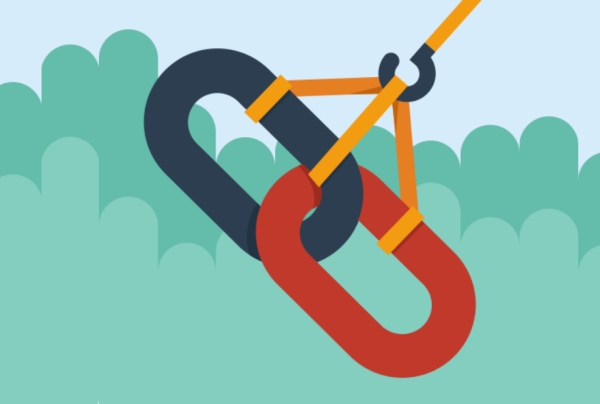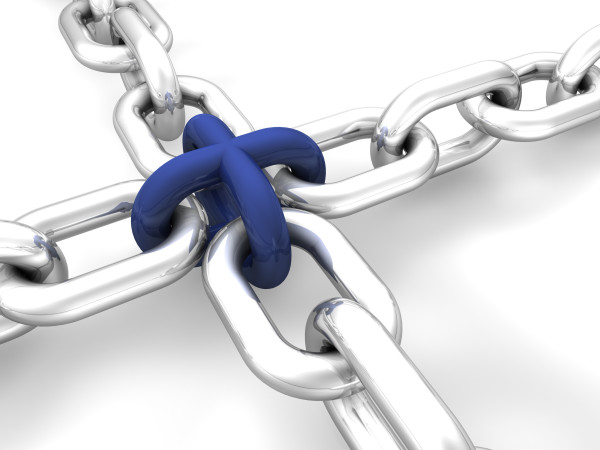Up until recently, there’s been a lot of mysticism about the algorithm of Search Engines, especially Google.
Recently this changed, when one of the Google employees confirmed what the three most important factors are. You might have known for a while that the number 3 was RankBrain, and now we also know the number 1 and 2 factors: Content and Links.
Most people in the industry have known that for a while, so it was good to hear the confirmation.
Today I’m going to tell you a little bit about each one, what to do and what not to do, so that you don’t get lost in the details.
Content:
Traditionally, when we talk about content most people think about written content, which is important…and this can be for a hotel the written content of a homepage, description of your rooms. But it does apply a little bit more broadly, there is video content, interactive content, etc.. Even if we look at the written content, we got different elements within a webpage that Google may treat differently, for example, the h1 and h2 in comparison with the body copy.
Search engines pay a little bit more attention to rich snippet mark-ups. These snippets put on your site can tell search engines what exactly an element is. Search engines can’t watch videos and tell what that video is about, so basically you make a mark-up and say what it is about, a description is also very helpful with this.
When we talk about content, what we talk about is the information and what that information actually means. The key is writing content that is useful and helpful to the consumer.
Let’s say you get more traffic from natural search and the visitors don’t understand what’s on your page because it is written for a certain search engine instead for a person, it’s not going to serve you very well. I don’t think you want people bouncing off your page.
Another thing related to writing for customers or engines, ties to the hierarchy of your content, your header1, header2, header3… those aren’t just merely design elements, it’s not just a way to make your words big and bold. It’s important that you lay everything out where the h1 is the main topic, h2, h3 are for content as an example. It’s important that you categorize your content in a way that’s helpful for your consumer.
There’s also another question that many people are asking, for example, if you want to target a certain keyword, how many times should you put that keyword in your content.
The truth is that it just needs to appear natural, there is no right or wrong number of times, it just needs to come naturally, it needs to be in the header, it needs to be throughout your content, your title tag, and meta description if that’s important, but don’t use just that keyword, you can use variances of it too.
Google implemented a system called Latent Semantic Indexing, which basically compares semantically relevant words, for example if you write about Hotels, then using words like accommodation, in lodgings, are gonna reinforce that you are talking about a hotel. So writing about content around the subject matter can really help boost your relevance to Google.
When we talk about content being one of the top 2 factors, that’s really what we are talking about. We are talking about being relevant and useful and try to provide content that is going to match up with the consumers queries on the search engines.
Link building:
Link building is the process of acquiring hyperlinks from other websites to your own. A hyperlink is a way for users to navigate between pages on the internet. Search engines use links to crawl the web; they will crawl the links between the individual pages on your website, and they will crawl the links between entire websites. There are many techniques for building links, and while they vary in difficulty, SEO experts tend to agree that link building is one of the hardest parts of their jobs. Many marketers spend the majority of their time trying to do it well. For that reason, if you can master the art of building high-quality links, it can truly put you ahead of your competition.
Once search engines have crawled pages on the web, they can extract the content of those pages and add it to their indexes. In this way, they can decide if they feel a page is of sufficient quality to be ranked well for relevant keywords.
When they are deciding this, the search engines do not just look at the content of the page; they also look at the number of links pointing to that page from external websites and the quality of those external websites. Generally speaking, the more high-quality websites that link to you, the more likely you are to rank well in search results.
It is so effective because it is based on the idea that a link can be seen as a vote of confidence for a certain page. The foundation is that when someone links to another website, they are saying it is good. Otherwise, they wouldn’t do it, in the same way you wouldn’t make a bad recommendation to a friend.
Quality is more important than ever, because Google has begun penalizing websites that build low-quality or spammy links. Here are some type of links that you should know:
Natural Links
These are the links that you didn’t even have to ask for because they are given by other website owners. This is much more efficient than having to contact someone and ask them to link to you. However, you need to give someone a good reason to do so, and you need to find ways of making large numbers of bloggers aware of that reason.
An example of a good reason may be a great piece of content that you’ve created which you then seeded with a few key influential bloggers, and through that process more bloggers have naturally become aware of it. This is hard to do and can take time, which is part of why these types of links are so highly valued. They are also the types of links that Google often hold up as great examples, indicating that they will stand the test of time.
Manual Links
This is probably one of the most common types of link-building you’ll perform as
an SEO, particularly if you’re just starting out or your business is still quite small
and unknown. It involves manually contacting website owners and bloggers,
asking them to link to you. Again, you need to give them a reason to link to you
and to be successful, you need to be contacting people who are relevant. If you’re
contacting people who have no connection to your industry, then they are likely to be confused when you ask for a link.
Self-created Links
This type of link is generally frowned upon these days, as it often falls in line with black-hat practices that aim to fool the search engines into thinking a piece of content is relevant and important when it actually isn’t. With the introduction of Penguin in 2012, Google has begun devaluing and even penalizing this type of link.
Due to these links not being editorially given, they inherently carry less weight than the other types of links. In the past, they have been useful for some SEOs working on certain websites, but you should use great caution in their implementation now.
RankBrain:
RankBrain is an artificial intelligence system that’s being applied to and used with Google’s current search engine algorithms to provide better results to user queries.
Rooted in machine learning, RankBrain will use mathematical processes and an advanced understanding of language semantics to gradually learn more about how and why people search, and apply those conclusions to future search results.
Rather than being pre-programmed to respond to certain situations in a specific, pre-determined way, it can update itself over time. Think of it as a robot that can constantly search for better parts to upgrade itself.
What to do to keep yourself ranking on top when it comes to RankBrain:
1. Improve your content, aim for improving it 10 times than it already is. Also be very specific, RankBrain will take into consideration that when it will decide if what you provide has enough quality or not.
2. Keeping it laser focused and building on technical improvements such as site speed, microdata, and SSL is now more important than ever. Branching out to other topics or niches will become less of a priority for blogs and news sites.
3. Do things that never die in SEO:
-Write more completely
-Answer more questions
-Answer questions that were not asked yet
-Publish enough to become an authority on a topic







